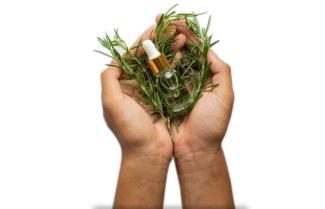
The best nutrient for boosting collagen production in the body is vitamin C. It plays a critical role in collagen synthesis and is essential for maintaining healthy skin, hair, nails, joints, and connective tissue. Here, I'll describe the importance of vitamin C in collagen production and discuss other important nutrients in detail:
- Vitamin C: Ascorbic acid, or vitamin C, is a potent antioxidant that is crucial for the production of collagen. It serves several key functions in collagen synthesis, including the conversion of proline and lysine into hydroxyproline and hydroxylysine, which are necessary for the stability and structure of collagen fibers. Vitamin C also helps protect collagen from damage by free radicals. It can be found in citrus fruits (oranges, lemons, grapefruits), berries (strawberries, blueberries), red and green bell peppers, broccoli, and spinach.
- Amino Acids: Amino acids are the building blocks of proteins, including collagen. Two essential amino acids that play a significant role in collagen production are:
- L-arginine: This amino acid is necessary for the formation of collagen and can be obtained from sources like poultry, fish, nuts, and seeds.
- L-lysine: Lysine is another amino acid vital for collagen synthesis, and it can be found in foods such as lean meats, fish, dairy products, legumes, and tofu.
- Silicon: Silicon is a trace mineral that contributes to healthy skin, hair, and nails, and it is important for collagen formation. Foods rich in silicon include oatmeal, brown rice, beans, oats, and green vegetables. You can also consider silicon supplements if needed.
- Copper: Copper is a mineral that plays a role in the cross-linking of collagen, which enhances its structural integrity. Good dietary sources of copper include nuts, whole grains, legumes, liver, and dark chocolate.
- Zinc: Zinc is involved in many enzymatic reactions, including those related to collagen synthesis. It can be found in foods like meat, seafood, dairy products, nuts, and seeds.
- Vitamin E: Vitamin E is an antioxidant that helps protect collagen from oxidative stress. Sources of vitamin E include nuts, seeds, olive oil, and spinach.
- Hydration: Staying well-hydrated is crucial for maintaining healthy skin and supporting collagen function. Water is essential for overall health and skin hydration.
- Omega-3 Fatty Acids: Omega-3 fatty acids, found in fatty fish like salmon, walnuts, flaxseeds, and chia seeds, have anti-inflammatory properties and can help maintain healthy skin.
It's important to note that maintaining a well-balanced diet that includes a variety of nutrient-rich foods is key to supporting collagen production and overall skin health. Additionally, other lifestyle factors like protecting your skin from excessive sun exposure, avoiding smoking, and managing stress can also contribute to collagen preservation and overall skin health.






